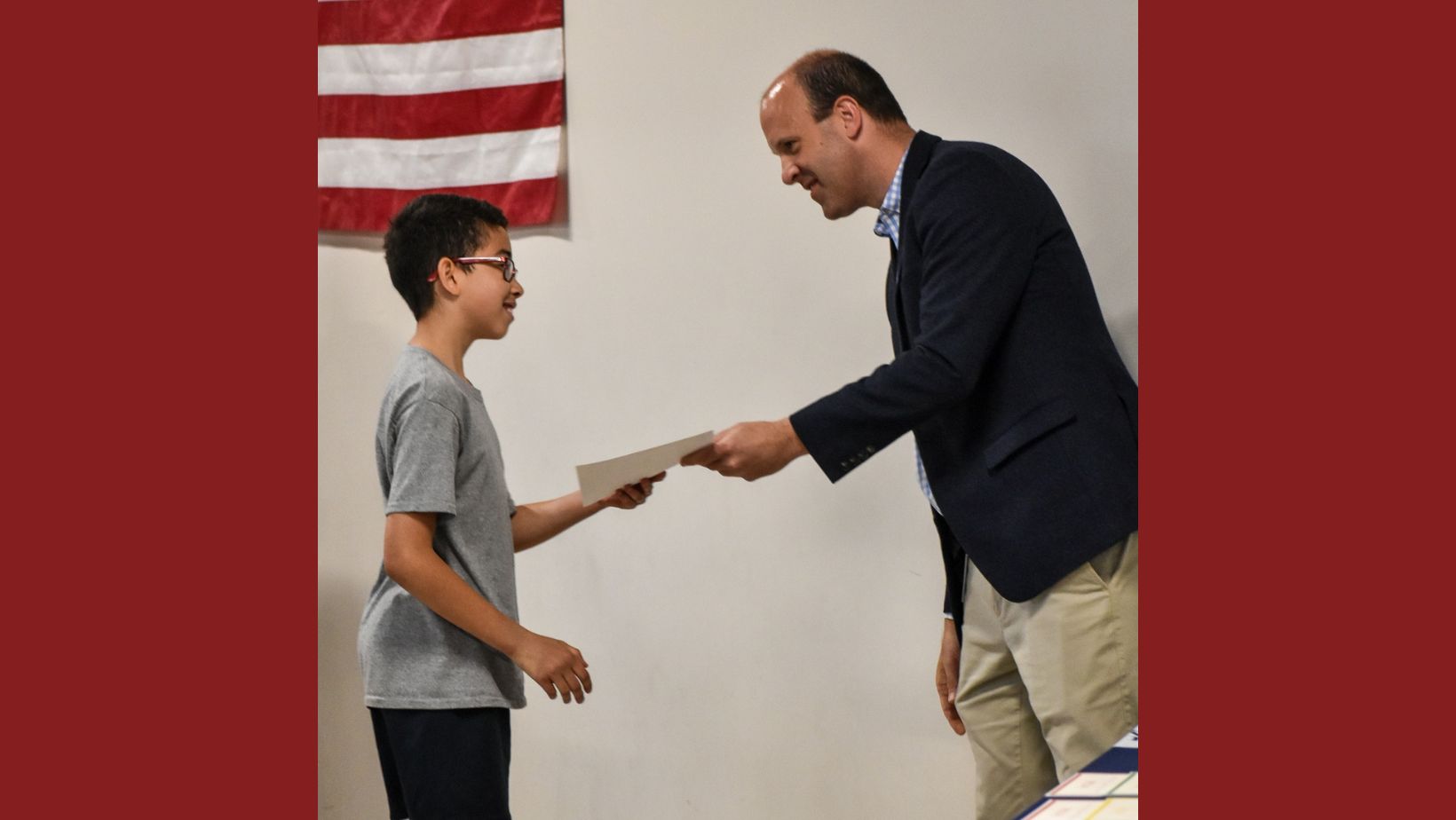In a few short hours, our first year together will be over. You are to be congratulated. Consider just a bit of what you have achieved:
You recited great poetry and speeches in front of the entire school, despite your fears and anxieties; you’ve conquered the mile run, the push-up, and the pull-up, as well as the Waltz, the Polka, and the Kalamatianos; you’ve molded clay sculptures, built Roman statues, and painted great pieces of art; you’ve learned all 72 phonograms, bar-modeled math problems, diagrammed sentences, survived Latin, conducted over 60 science experiments, wrestled with Tom Sawyer and Fahrenheit 451, and rediscovered the foundations of our nation and explored the mysteries of history; you learned to play the ukelele and boom whackers and trained the instrument of your voice to sing beautiful songs to God and country; and you put on a one act play with skill and flair. And those are just the tip of the iceberg.
It is fitting that we end the year with field day—a day of athletic competition and camaraderie. In ancient Greece, the winner of athletic contests would receive a wreath or crown of laurels from the wild olive tree to symbolize victory and achievement. Laurels were awarded at the ancient Olympic games before they ever gave out medals. But the tradition of the laurels is also where we get the idiom, “don’t rest on your laurels.” It means that we must not simply bask in our past victories and consider our work done. It is no coincidence that we call graduation ceremonies “commencements”—which means to begin, not to end. While we do not yet have any graduates, this day, too, can be considered a commencement—a beginning, not an end.
So, my final word to you this year is this: Congratulations, well done…now, don’t rest on your laurels.
Have a wonderful summer.


